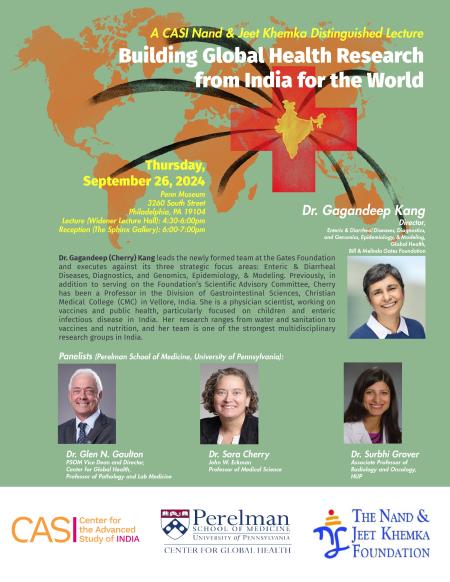Dr. Gagandeep Kang

Dr. Gagandeep "Cherry" Kang is responsible for leading the newly formed team at the Gates Foundation and executing against its three strategic focus areas as Director of Enteric & Diarrheal Diseases, Diagnostics, and Genomics, Epidemiology, & Modeling. Previously, in addition to serving on the foundation’s Scientific Advisory Committee, Cherry has been a Professor in the Division of Gastrointestinal Sciences, Christian Medical College (CMC) in Vellore, India. She is a physician scientist working on vaccines and public health, particularly focused on children and enteric infectious disease in India. Her research ranges from water and sanitation to vaccines and nutrition, and her team is one of the strongest multidisciplinary research groups in India, internationally recognized and consistently funded by the Wellcome Trust, the National Institutes of Health, and more recently, the foundation. While based at CMC for most of her career, she also worked for the Government of India, leading and building India's first translational health science institute. She has served on WHO headquarters, WHO Southeast Asia and Indian committees related to vaccines, covering policies and introductions, and in more technical areas, safety, new product development, modeling and biological standardization. She has been a mentor and guide for women at work and outside of work.

